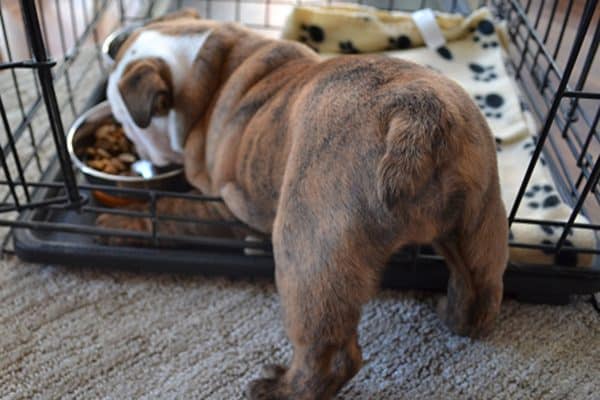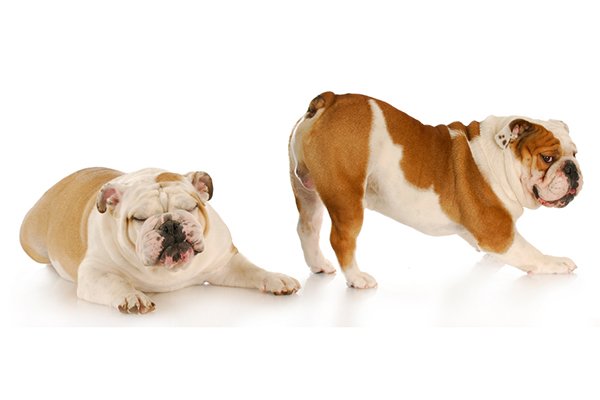The post Decoding Dog Gas —– When Is It a Problem? by Jackie Brown appeared initially on Dogster . Copying over whole posts infringes on copyright laws. You might not understand it, however all of these short articles were designated, paid and contracted for, so they aren’t thought about public domain. We value that you like the post and would enjoy it if you continued sharing simply the very first paragraph of a short article, then connecting out to the rest of the piece on Dogster.com.
Have you ever been snuggling on the sofa with your canine and heard weird rumbling noises originating from his stomach ? Canine gas has some seriously gross adverse effects. Some canines belch and others have the opposite issue —– their smelly gas can clear a space! ““ Gas is a typical by-product of food digestion ,” ” describes Tracey Jensen, DVM, Dipl. ABVP, establishing partner of Wellington Veterinary Hospital in Wellington, Colorado. ““ When you hear the stomach gurgling , it ’ s gas and liquid. It ’ s the exact same sort of noises you hear in a soda can, it simply sounds various due to the fact that it ’ s inside a pet dog. Dogs burp much like individuals do and they expel gas from the intestinal tracts in the kind of flatulence. ”
. What ’ s typical and what ’ s not when it concerns pet gas?
Is that pet gas typical —– or not? Photography ©© Fly_dragonfly|Thinkstock.
A percentage of stomach gurgling, burping or perhaps farting is typical for a lot of pet dogs, however extreme pet dog gas might signify an issue. ““ When it’’ s unusual is when it ’ s extreme in volume or smell, ” Dr. Jensen states. “ When it’’ s consistent or constant, it ’ s an indicator of a range of various things that require a check out to your vet.””
.
Excessive pet dog gas might be brought on by a less-than-ideal diet plan. If the active ingredients in your canine’’ s food are difficult for him to absorb, it may lead to burping, stomach gurgling or flatulence. Big quantities of pet dog gas or extremely foul-smelling canine gas might likewise be indications of concerns like inflammatory bowel illness or digestive tract parasites.
.Detecting unusual pet dog gas.
If your pet is extremely gassy, your veterinarian may wish to run particular tests, specifically a fecal test to look for parasites. When you go to the visit, bring a fresh stool sample, the label from your pet’’ s food and any supplements or deals with your canine gets at house.
. Dealing with pet dog gas.
If no obvious problems are found as the reason for the pet dog gas, your veterinarian maytalk with you about changing your canine to a greater quality of the food for increased digestibility, and possibly including day-to-day probiotics .
.
“ In straightforward cases when there ’ s not a hidden medical“issue, probiotics are great, ” Dr. Jensen encourages in concerns to dealing with pet dog gas. “ Probiotics” differ in their strength and in the proof “behind the particular preparation of probiotic, so certainly go to with your vet so she or he can suggest which probiotics would be best for your family pet. ”
.
Although it ’ s safe to offer your pet dog percentages of plain yogurt as’a healthy treat, he likely won ’ t enjoy lots of take advantage of the probiotics discovered in yogurt. “ Let ’ s face it, felines and pets consume things’that we would never ever imagine, ” Dr. Jensen states. “ They have quite robust digestion systems. The probiotics that you discover in yogurt are simply not powerful adequate to get to the digestive system of our domestic family pets since of that. ”
. Yes, canine gas is more common in specific types!.”
Some canine types are more susceptible to gas merely since of the method they are developed. The pushed-in faces of the brachycephalic types , consisting of Boston Terriers , Boxers , Bulldogs and Pugs , triggers these pets to swallow air while they consume, which can result in excess gas in their digestion systems. If you have a short-nosed type, you comprehend the truth of life with pet gas (good idea they’’ re so charming!).
.How to stop/ aid pet gas 
What and how your pet dog consumes can impact his concerns with gas. Photography ©© CarlyDybka|Thinkstock.
There are some actions you can require to minimize canine gas, particularly in flat-faced types. Make sure the food you’’ re feeding is extremely high quality and extremely absorbable. If you’’ re uncertain, speak with your veterinarian about it. Next, think about offering your pet day-to-day probiotics.
Once those things remain in location, have a look at the method your canine is consuming. ““ Chewing is the very first part of food digestion,” ” Dr. Jensen “states. “ When canines inhale their food , they bypass this crucial action. Dry food is simple to shovel into their mouths. ”
.
You can likewise discover unique animal food bowls that”are created to assist short-nosed pets consume more conveniently and swallow less air, and there are even some brand names of dry food created with brachycephalic types in mind. “ Pet food business have actually resolved how those short-nosed pets get their food and have actually produced kibble to reduce the quantity of air that those animals take in as part of getting their food, ” Dr. Jensen discusses. “ Smaller kibble sizes or kibbles with bigger area like those formed like LifeSavers are more effective for “pets that do not chew their food. ”
.
A couple of other techniques that might assist minimize swallowing air throughout mealtimes and lower canine gas? Raising the food bowls or including some water to the food. “ By including a little water to the dry food, similar to you would put milk on cereal, aggressive eaters will ‘ lap ’ instead of ‘ grab ’ their food. When they utilize their tongues like ladles rather of shovels, they decrease and swallow ‘less air. ”
.
Thumbnail : Photography © WilleeCole|Thinkstock.
.
This piece was initially released in 2017.
. About the author
Pet specialist Jackie Brown has actually invested 20 years following her enthusiasm for animals as an author and editor in the family pet publishing market. She is contributing author for National Geographic ’ s Complete Guide to Pet Health, Behavior, and Happiness: The Veterinarian ’ s Approach to At-Home Animal Care( April 2019) and author of the book It ’ s Raining Dogs and felines: Making Sense of Animal Phrases( Lumina Press, 2006’). Jackie is a routine factor to animal and veterinary market media and is the previous editor of various family pet publications, consisting of Dog World, Natural Dog, Puppies 101, Kittens 101 and the Popular Cats Series. Prior to beginning her profession in publishing, Jackie invested 8 years operating in veterinary medical facilities where she helped vets as they dealt with pets , felines, bunnies, pocket family pets, reptiles, birds and one remarkable lion cub. She resides in Southern California with her partner, 2 children and mini poodle Jäger. Reach her at jackiebrownwriter.wordpress.com .
. Learn more about pet digestion problems on Dogster.com: Dog Diarrhea– At-Home Treatment and When to See a Vet All About Dog Gastrointestinal Issues– Diarrhea, Vomiting, Constipation and More What Is HGE( Hemorrhagic Gastroenteritis) in Dogs? .
Experiencing gas yourself? If it might be dairy intolerance>>
, see.
The post Decoding Dog Gas– When Is It a Problem? by Jackie Brown appeared initially on Dogster . Copying over whole short articles infringes on copyright laws. You might not know it, however — all of these short articles were appointed, paid and contracted for, so they aren’t thought about public domain. We value that you like the short article and would like it if you continued sharing simply the very first paragraph of a post, then connecting out to the rest of the piece on Dogster.com.
.
Read more: dogster.com





Recent Comments